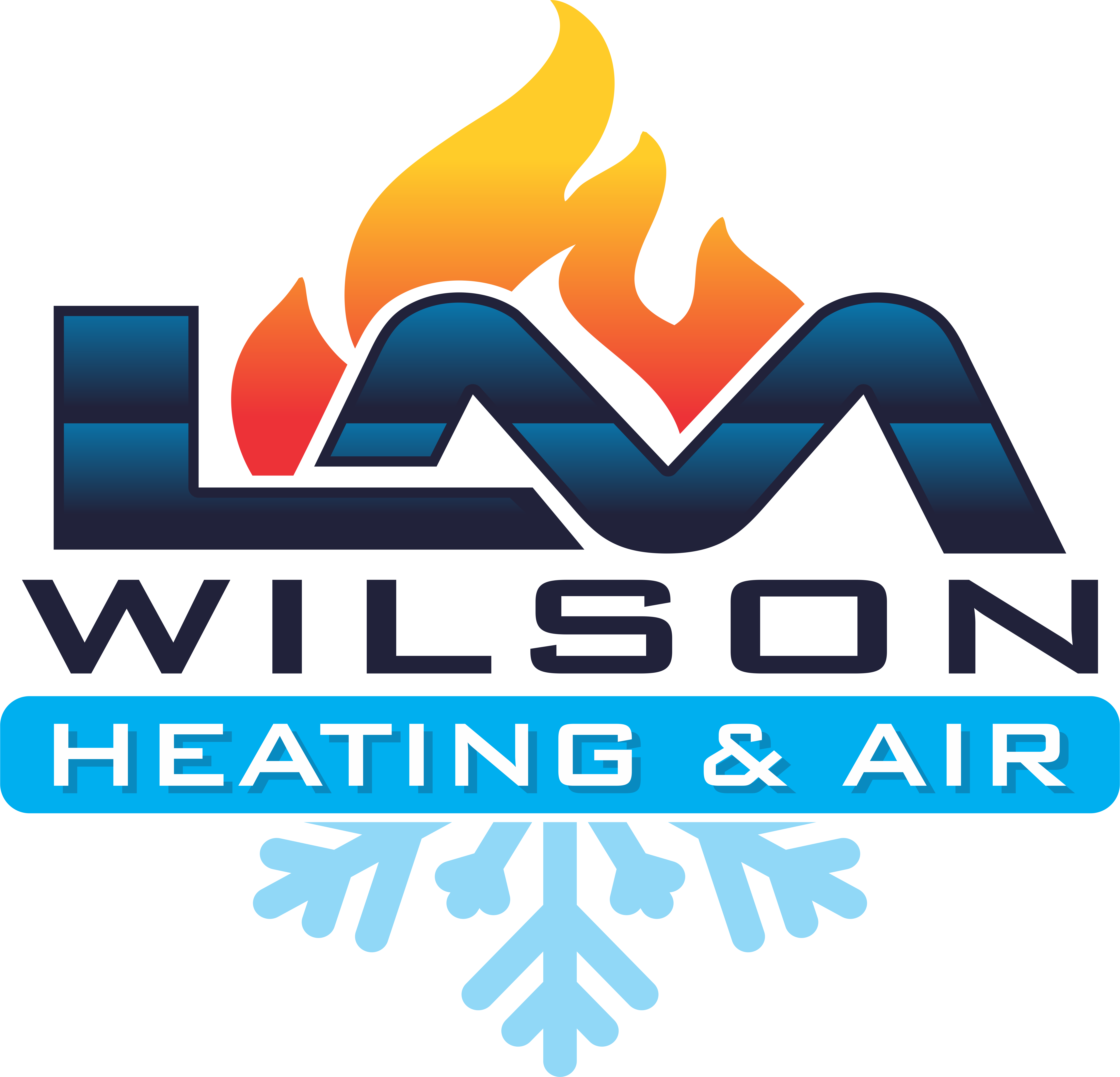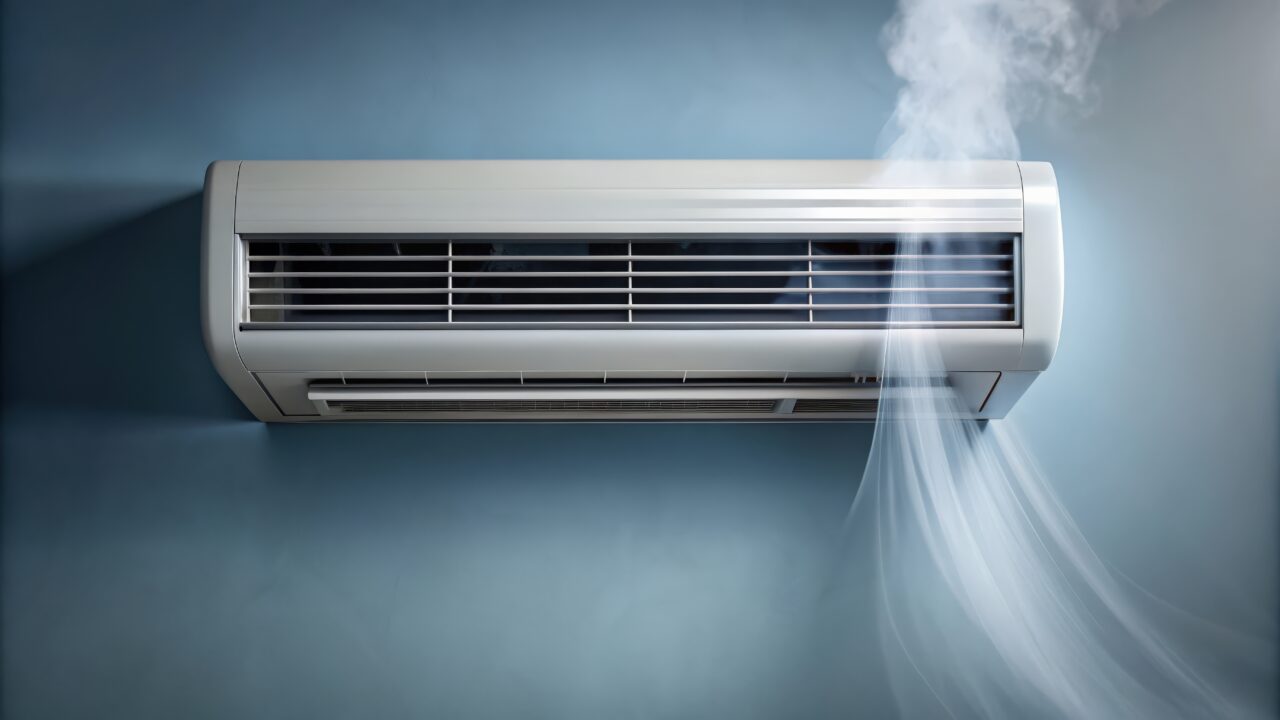When your HVAC system starts emitting a strange smell, it can be unsettling. Is it something minor, or is it a warning sign of a more serious issue? Odors from your heating or cooling system often point to underlying problems that could affect your indoor air quality, the health of your system, or even your safety. In this blog, we’ll walk you through common HVAC smells, what they mean, and what steps you should take to address them.
Musty or Moldy Smell
Cause: A musty or moldy odor usually indicates moisture buildup in the system, leading to the growth of mold or mildew. This smell often originates in areas like the air ducts, evaporator coils, or drip pans where moisture can accumulate.
Why It Matters: Mold can significantly reduce air quality and aggravate respiratory conditions such as asthma or allergies. If left unaddressed, it could spread throughout your system, making the problem more expensive to fix.
What to Do:
- Inspect the air filter: If the filter is clogged, replace it immediately.
- Check the condensate line and drain pan: Ensure these components are clear and draining properly.
- Schedule a professional HVAC cleaning: LM Wilson Heating & Air technicians can thoroughly clean and sanitize your system to eliminate mold spores and prevent future growth.
Burning or Electrical Smell
Cause: A burning or electrical odor may come from various components, such as the motor, wiring, or circuit board. It is often a sign of overheating or a malfunctioning part.
Why It Matters: Electrical smells are serious and should never be ignored. Overheated components can lead to system failure or even start a fire.
What to Do:
- Turn off the HVAC system immediately.
- Check for tripped circuit breakers or any visible damage to the unit.
- Call a licensed HVAC technician as soon as possible to diagnose and repair the issue.
At LM Wilson Heating & Air, our experts can inspect your system safely, replace damaged components, and ensure your unit operates efficiently.
Rotten Egg or Sulfur Smell
Cause: A sulfuric or rotten egg smell is often a sign of a natural gas leak. While natural gas itself is odorless, utility companies add mercaptan to give it a distinctive sulfur-like smell to warn homeowners of leaks.
Why It Matters: Gas leaks are dangerous, posing a risk of explosion or carbon monoxide poisoning. If you smell sulfur, it’s crucial to act immediately.
What to Do:
- Turn off the HVAC system and any gas appliances.
- Evacuate your home immediately.
- Contact your utility provider or gas company.
- Do not attempt to fix the issue on your own. Once the area is deemed safe, schedule a professional inspection with LM Wilson Heating & Air to check your HVAC system for gas leaks.
Chemical or Paint-like Odor
Cause: A chemical smell might suggest leaking refrigerant or issues with newly installed components, such as adhesives, paint, or cleaning agents.
Why It Matters: Refrigerant leaks can cause your HVAC system to underperform, leading to higher energy bills and poor cooling or heating. Prolonged exposure to refrigerants can also pose health risks.
What to Do:
- Inspect the area for spills or solvents.
- If the chemical odor persists and is accompanied by poor system performance, schedule a refrigerant leak inspection. Our technicians at LM Wilson Heating & Air can detect and repair leaks and recharge your system with the proper refrigerant levels.
Dirty Socks or Stale Smell
Cause: This strange odor, often referred to as “dirty sock syndrome,” comes from bacteria and mold growing on the evaporator coils. It commonly occurs when the HVAC system switches from heating to cooling modes in the spring and fall.
Why It Matters: While not immediately hazardous, the smell is unpleasant and a sign that the coils need cleaning. If left unchecked, it can reduce the efficiency of your system and impact indoor air quality.
What to Do:
- Inspect the evaporator coils for dirt or buildup.
- Clean or replace the air filter regularly.
- Schedule a professional maintenance visit to clean the coils thoroughly and prevent further odor issues.
Exhaust Fumes or Burning Oil Smell
Cause: If you smell exhaust fumes or burning oil, it could indicate that your HVAC system is not venting properly or that there’s a problem with the heat exchanger. This is especially common in systems that use oil or gas.
Why It Matters: Poor ventilation can allow dangerous gases like carbon monoxide to enter your home. A cracked heat exchanger can also pose serious health risks.
What to Do:
- Turn off the system and ensure your home’s carbon monoxide detectors are working.
- Schedule an emergency inspection with LM Wilson Heating & Air. Our technicians will assess your system, repair any issues, and restore safe operation.
Sewage or Decaying Animal Smell
Cause: If your HVAC system smells like sewage, it may indicate a backup in the sewer line or a cracked vent pipe. Alternatively, small animals sometimes find their way into the ductwork, leaving behind unpleasant odors if they pass away inside the system.
Why It Matters: These smells not only create discomfort but could also be signs of larger plumbing or HVAC issues.
What to Do:
- Check your plumbing vents and drains for blockages.
- Have your air ducts inspected by an HVAC professional to remove any animals or debris.
- LM Wilson Heating & Air offers comprehensive duct cleaning services to restore fresh air circulation.
Sweet or Ether-like Smell
Cause: A sweet or ether-like odor could indicate a refrigerant leak, as some refrigerants have a distinctive, sugary scent.
Why It Matters: Leaking refrigerant not only affects your HVAC system’s performance but also harms the environment and poses health risks if inhaled.
What to Do:
- Turn off the HVAC system.
- Schedule a refrigerant leak detection service. At LM Wilson Heating & Air, we can promptly identify leaks, repair them, and restore the refrigerant charge.
How to Prevent HVAC Smells
Proactive maintenance is the best way to prevent unpleasant odors from your HVAC system. Here are some tips to keep your system in top shape:
- Change your air filters regularly (every 1-3 months).
- Schedule annual HVAC maintenance for cleaning and tune-ups.
- Inspect and clean air ducts every few years.
- Ensure proper drainage from condensate lines and drip pans.
- Install a dehumidifier if your home tends to retain moisture.
LM Wilson Heating & Air offers preventive maintenance plans designed to keep your HVAC system running smoothly and odor-free all year round.
Strange smells from your HVAC system are not just nuisances—they are often indicators of underlying issues that could affect your health, safety, and comfort. Whether it’s a minor issue like a dirty filter or a more serious concern like a gas leak, it’s essential to address these odors promptly. If you notice any unusual smells coming from your HVAC system, contact LM Wilson Heating & Air for a professional inspection and repair.
Our team of licensed technicians is here to help diagnose and resolve any HVAC issue with expertise you can trust. We are committed to keeping your home comfortable, safe, and odor-free. Schedule a service today to ensure your HVAC system is in peak condition.
Need assistance? Contact LM Wilson Heating & Air today at (336) 663-1370 and let our experts handle your HVAC needs efficiently and professionally!


